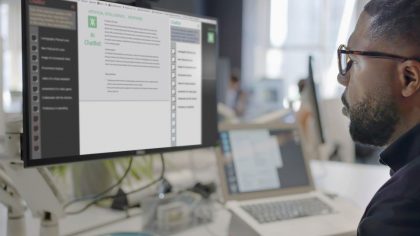Ethical AI and children: the benefits of a multi-disciplinary approach
• Current ethical AI principles do not provide sufficient protection for children, who are not taken into account by companies developing AI services.
• Oxford University researchers recommend a multidisciplinary approach to designing AI systems suitable for juvenile users, which involves developers and designers, as well as parents and teachers.
• They also deplore the fact that there has been little or no research into the impact of algorithms on children's long-term development.
Read the article
• Oxford University researchers recommend a multidisciplinary approach to designing AI systems suitable for juvenile users, which involves developers and designers, as well as parents and teachers.
• They also deplore the fact that there has been little or no research into the impact of algorithms on children's long-term development.


Search and rescue: drones that detect human voices under collapsed buildings
Read the article
Neurotechnology: auditory neural networks mimic the human brain
Read the article
P-C. Langlais (PLEAIS): “Our language models are trained on open corpora”
Read the article
Competition in the race for AI shakes up the world of semiconductors
Read the article

